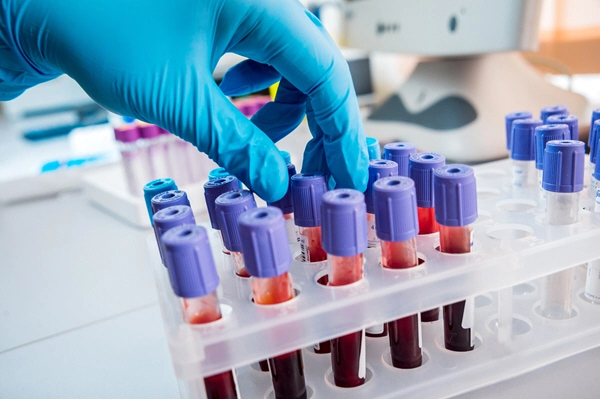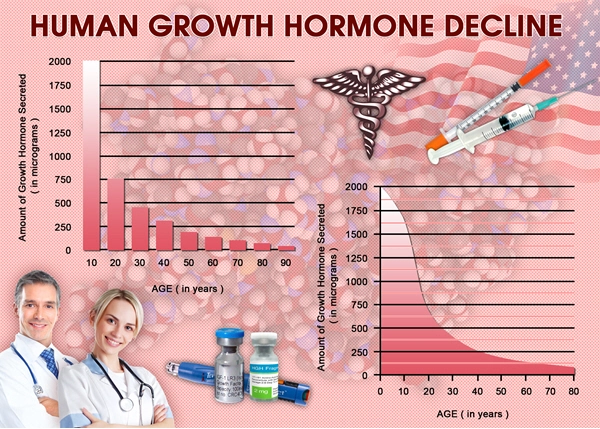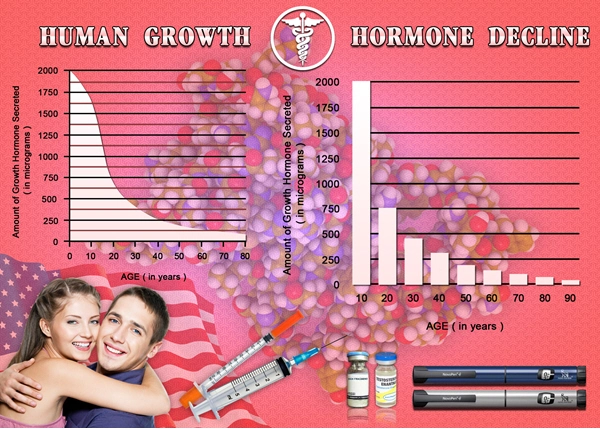Introduction to Hypogonadism and Its Impact on Urinary Health
Hypogonadism, a condition characterized by the body's inability to produce sufficient testosterone, can have a profound impact on various aspects of men's health, including urinary function. For American males, understanding the link between hypogonadism and urinary health is crucial for effective management and improved quality of life. This article delves into the medical diagnosis and management strategies for hypogonadism, with a particular focus on its effects on urinary health.
Understanding Hypogonadism
Hypogonadism can be classified into primary and secondary types. Primary hypogonadism originates from a problem in the testicles, whereas secondary hypogonadism stems from issues in the hypothalamus or pituitary gland. Symptoms may include decreased libido, erectile dysfunction, fatigue, and mood changes. Importantly, hypogonadism can also influence urinary health, leading to conditions such as benign prostatic hyperplasia (BPH) and lower urinary tract symptoms (LUTS).
Diagnosis of Hypogonadism
Diagnosing hypogonadism involves a comprehensive evaluation, starting with a detailed medical history and physical examination. Blood tests to measure testosterone levels are essential, typically conducted in the morning when levels are highest. Additional tests may include luteinizing hormone (LH) and follicle-stimulating hormone (FSH) levels to differentiate between primary and secondary hypogonadism. For American males, it is important to consult with healthcare providers who are well-versed in endocrinology and urology to ensure a thorough assessment.
Impact on Urinary Health
The relationship between hypogonadism and urinary health is multifaceted. Low testosterone levels can contribute to the development of BPH, a condition characterized by an enlarged prostate that can obstruct urine flow. This can lead to LUTS, such as frequent urination, urgency, and weak urine stream. Moreover, hypogonadism may exacerbate existing urinary issues, making it essential for men to address both conditions concurrently.
Management Strategies for Hypogonadism
Effective management of hypogonadism involves a tailored approach that addresses both the hormonal imbalance and its impact on urinary health. Testosterone replacement therapy (TRT) is a common treatment for hypogonadism, available in various forms such as gels, injections, and patches. TRT can help alleviate symptoms and potentially improve urinary function by reducing prostate size and alleviating LUTS.
Addressing Urinary Health
In addition to TRT, managing urinary health may require specific interventions. For men with BPH, medications such as alpha-blockers and 5-alpha reductase inhibitors can help relieve symptoms by relaxing prostate muscles and reducing prostate size. In some cases, surgical options like transurethral resection of the prostate (TURP) may be necessary. Regular monitoring and follow-up with healthcare providers are crucial to assess the effectiveness of treatments and make necessary adjustments.
Lifestyle Modifications
Lifestyle changes play a significant role in managing hypogonadism and urinary health. Maintaining a healthy weight, engaging in regular physical activity, and adopting a balanced diet can help improve testosterone levels and overall well-being. Additionally, avoiding excessive alcohol consumption and smoking can mitigate the risk of exacerbating urinary issues. For American males, integrating these lifestyle modifications can enhance the efficacy of medical treatments and promote long-term health.
Conclusion: A Holistic Approach to Health
For American males grappling with hypogonadism and its impact on urinary health, a holistic approach to management is essential. By combining medical interventions with lifestyle modifications, men can effectively address both conditions and improve their quality of life. Regular consultations with healthcare providers, adherence to prescribed treatments, and proactive health management are key to navigating the challenges posed by hypogonadism and urinary health.

- Hypogonadism and Sleep Disorders: A Bidirectional Link in American Males [Last Updated On: February 18th, 2025] [Originally Added On: February 18th, 2025]
- Understanding and Managing Hypogonadism: A Comprehensive Guide for American Males [Last Updated On: March 11th, 2025] [Originally Added On: March 11th, 2025]
- Unveiling the Link Between Hypogonadism and Mental Health: A Comprehensive Guide for American Males [Last Updated On: March 11th, 2025] [Originally Added On: March 11th, 2025]
- Unveiling the Effects of Hypogonadism on Muscle Vitality in American Males [Last Updated On: March 16th, 2025] [Originally Added On: March 16th, 2025]
- Unraveling the Nexus of Hypogonadism and Autoimmune Diseases: A Comprehensive Guide for American Males [Last Updated On: March 16th, 2025] [Originally Added On: March 16th, 2025]
- Unveiling the Link Between Hypogonadism and Impaired Wound Healing in American Males [Last Updated On: March 16th, 2025] [Originally Added On: March 16th, 2025]
- Unraveling the Nexus of Hypogonadism and Parathyroid Function: Insights for American Males [Last Updated On: March 16th, 2025] [Originally Added On: March 16th, 2025]
- Exercise Boosts Testosterone: Managing Hypogonadism in American Males [Last Updated On: March 18th, 2025] [Originally Added On: March 18th, 2025]
- Hypogonadism's Impact on Liver Function: Management and Monitoring Strategies [Last Updated On: March 18th, 2025] [Originally Added On: March 18th, 2025]
- Hypogonadism and Chronic Pain: Integrated Treatment Approaches for American Males [Last Updated On: March 19th, 2025] [Originally Added On: March 19th, 2025]
- Hypogonadism and Testosterone Therapy: Benefits, Risks, and Considerations for American Males [Last Updated On: March 19th, 2025] [Originally Added On: March 19th, 2025]
- Ethical Considerations in Treating Hypogonadism with Testosterone Therapy in American Men [Last Updated On: March 19th, 2025] [Originally Added On: March 19th, 2025]
- Hypogonadism and Thyroid Dysfunction: Exploring Correlations and Clinical Implications in American Males [Last Updated On: March 20th, 2025] [Originally Added On: March 20th, 2025]
- Hypogonadism and Prostate Health: Understanding Links, Risks, and Management Strategies [Last Updated On: March 20th, 2025] [Originally Added On: March 20th, 2025]
- Understanding Hypogonadism: Causes, Symptoms, and Treatment for American Males [Last Updated On: March 20th, 2025] [Originally Added On: March 20th, 2025]
- Hypogonadism in American Males: Links to Cancer Risk and Management Strategies [Last Updated On: March 20th, 2025] [Originally Added On: March 20th, 2025]
- Hypogonadism's Impact on Men's Health and Quality of Life: Diagnosis, Treatment, and Support [Last Updated On: March 21st, 2025] [Originally Added On: March 21st, 2025]
- Hypogonadism and Autoimmune Disorders: Interplay, Management, and Future Research in American Males [Last Updated On: March 21st, 2025] [Originally Added On: March 21st, 2025]
- Medical Imaging Advances in Diagnosing Hypogonadism: MRI, CT, and Ultrasound Techniques [Last Updated On: March 21st, 2025] [Originally Added On: March 21st, 2025]
- Hypogonadism's Impact on Skin Health in American Males: TRT Benefits and Risks [Last Updated On: March 22nd, 2025] [Originally Added On: March 22nd, 2025]
- Hypogonadism's Impact on Bone Health: Diagnosis, TRT, and Management Strategies [Last Updated On: March 22nd, 2025] [Originally Added On: March 22nd, 2025]
- Managing Hypogonadism: A Collaborative Approach by Medical Specialists [Last Updated On: March 22nd, 2025] [Originally Added On: March 22nd, 2025]
- Exploring Alternative Medicines for Hypogonadism Management in American Males [Last Updated On: March 22nd, 2025] [Originally Added On: March 22nd, 2025]
- Hypogonadism Screening Protocols and Recommendations for American Males [Last Updated On: March 22nd, 2025] [Originally Added On: March 22nd, 2025]
- Hypogonadism in American Males: Addressing Psychological Needs Through Tailored Counseling [Last Updated On: March 23rd, 2025] [Originally Added On: March 23rd, 2025]
- Hypogonadism and Hair Loss: Treatment Options and Outcomes for American Males [Last Updated On: March 23rd, 2025] [Originally Added On: March 23rd, 2025]
- Hypogonadism's Impact on Neurological Health in American Males: Cognitive and Mood Effects [Last Updated On: March 23rd, 2025] [Originally Added On: March 23rd, 2025]
- Hypogonadism's Impact on Gastrointestinal Health in American Males: A Comprehensive Review [Last Updated On: March 24th, 2025] [Originally Added On: March 24th, 2025]
- Hypogonadism and Hearing Loss: Exploring the Hormonal Connection in American Males [Last Updated On: March 24th, 2025] [Originally Added On: March 24th, 2025]
- Managing Hypogonadism in American Males with Kidney Disease: Strategies and Challenges [Last Updated On: March 24th, 2025] [Originally Added On: March 24th, 2025]
- Hypogonadism Treatment Advances: Trends, Therapies, and Lifestyle Interventions [Last Updated On: March 24th, 2025] [Originally Added On: March 24th, 2025]
- Hypogonadism's Impact on Blood Pressure: Symptoms, Management, and Lifestyle Strategies [Last Updated On: March 24th, 2025] [Originally Added On: March 24th, 2025]
- Hypogonadism and Cholesterol: Implications for Cardiovascular Health in American Males [Last Updated On: March 24th, 2025] [Originally Added On: March 24th, 2025]
- Hypogonadism's Impact on Respiratory Health in American Males: Mechanisms and Clinical Insights [Last Updated On: March 24th, 2025] [Originally Added On: March 24th, 2025]
- Medical Innovations Transform Hypogonadism Treatment for American Males [Last Updated On: March 24th, 2025] [Originally Added On: March 24th, 2025]
- Hypogonadism's Impact on Joint Health: Treatment and Management Strategies [Last Updated On: March 25th, 2025] [Originally Added On: March 25th, 2025]
- Hypogonadism and Headaches: Diagnosis, Treatment, and Management Strategies for American Males [Last Updated On: March 25th, 2025] [Originally Added On: March 25th, 2025]
- Medical Nutrition Therapy for Managing Hypogonadism in American Males [Last Updated On: March 26th, 2025] [Originally Added On: March 26th, 2025]
- Hypogonadism's Impact on Muscle Health in American Males: Diagnosis and Treatment Strategies [Last Updated On: March 26th, 2025] [Originally Added On: March 26th, 2025]
- Medical Technology Revolutionizes Hypogonadism Diagnosis in American Males [Last Updated On: March 26th, 2025] [Originally Added On: March 26th, 2025]
- Hypogonadism and Balance Disorders: Exploring the Link and Treatment Options in American Males [Last Updated On: March 26th, 2025] [Originally Added On: March 26th, 2025]
- Hypogonadism and Anemia in American Males: Diagnosis, Management, and Quality of Life [Last Updated On: March 26th, 2025] [Originally Added On: March 26th, 2025]
- Hypogonadism's Impact on Cognitive Function in American Males: A Comprehensive Review [Last Updated On: March 26th, 2025] [Originally Added On: March 26th, 2025]
- Hypogonadism's Impact on Eye Health: A Comprehensive Overview for American Males [Last Updated On: March 26th, 2025] [Originally Added On: March 26th, 2025]
- Medical Rehabilitation for Hypogonadism: Enhancing Quality of Life in American Males [Last Updated On: March 27th, 2025] [Originally Added On: March 27th, 2025]
- Hypogonadism's Impact on Immune Function in American Males: Insights and Therapies [Last Updated On: March 27th, 2025] [Originally Added On: March 27th, 2025]
- Preventing Hypogonadism in American Males: Strategies and Interventions [Last Updated On: March 27th, 2025] [Originally Added On: March 27th, 2025]
- Hypogonadism in Transgender Men: Diagnosis, Treatment, and Personalized Care [Last Updated On: March 27th, 2025] [Originally Added On: March 27th, 2025]
- Hypogonadism's Emotional Impact: Understanding and Managing Mental Health in American Men [Last Updated On: March 27th, 2025] [Originally Added On: March 27th, 2025]
- Hypogonadism and Allergies: Exploring Links and Implications for American Men [Last Updated On: March 27th, 2025] [Originally Added On: March 27th, 2025]
- Hypogonadism's Impact on Dental Health: A Comprehensive Overview for American Males [Last Updated On: March 27th, 2025] [Originally Added On: March 27th, 2025]
- Understanding Hypogonadism: Symptoms, Treatment, and Lifestyle Management for American Males [Last Updated On: March 27th, 2025] [Originally Added On: March 27th, 2025]
- Hypogonadism and GERD: Exploring Hormonal Links and Treatment Implications in American Males [Last Updated On: March 27th, 2025] [Originally Added On: March 27th, 2025]
- Hypogonadism and Vision: Understanding Testosterone's Role and Treatment Strategies [Last Updated On: March 28th, 2025] [Originally Added On: March 28th, 2025]
- Monitoring Hypogonadism in Long-Term Care: Strategies for Enhanced Patient Care [Last Updated On: March 29th, 2025] [Originally Added On: March 29th, 2025]
- Medical Social Workers: Vital Support for Men with Hypogonadism [Last Updated On: March 29th, 2025] [Originally Added On: March 29th, 2025]
- Hypogonadism in American Males: Diagnosis, Treatment, and Management Strategies [Last Updated On: March 30th, 2025] [Originally Added On: March 30th, 2025]
- Managing Hypogonadism-Related Fatigue: Therapies and Lifestyle Strategies [Last Updated On: March 30th, 2025] [Originally Added On: March 30th, 2025]
- Hypogonadism's Link to Peripheral Neuropathy in American Males: Diagnosis, Treatment, and Research [Last Updated On: April 2nd, 2025] [Originally Added On: April 2nd, 2025]
- Strategies to Enhance Adherence in Hypogonadism Treatment Among American Males [Last Updated On: April 2nd, 2025] [Originally Added On: April 2nd, 2025]
- Hypogonadism Linked to Accelerated Skin Aging in American Men: A Comprehensive Study [Last Updated On: April 4th, 2025] [Originally Added On: April 4th, 2025]
- Hypogonadism's Impact on Sinus Health: Exploring Hormonal Links and Treatment Implications [Last Updated On: April 6th, 2025] [Originally Added On: April 6th, 2025]
- Innovative Medical Devices Revolutionize Hypogonadism Management in American Men [Last Updated On: April 8th, 2025] [Originally Added On: April 8th, 2025]
- Hypogonadism's Impact on Gallbladder Health in American Males: A Comprehensive Overview [Last Updated On: April 8th, 2025] [Originally Added On: April 8th, 2025]
- Hypogonadism in Postmenopausal Women: Symptoms, Treatment, and Support for American Males [Last Updated On: April 9th, 2025] [Originally Added On: April 9th, 2025]
- Hypogonadism's Impact on Nail Health in American Males: Management and Care Strategies [Last Updated On: April 9th, 2025] [Originally Added On: April 9th, 2025]
- Hypogonadism's Impact on Wound Healing in American Males: Testosterone's Crucial Role [Last Updated On: April 9th, 2025] [Originally Added On: April 9th, 2025]
- Hypogonadism Linked to Impaired Lymphatic Function in American Males: Study Insights [Last Updated On: April 10th, 2025] [Originally Added On: April 10th, 2025]
- Empowering Nurses in Hypogonadism Care: Education Strategies and Impact [Last Updated On: April 11th, 2025] [Originally Added On: April 11th, 2025]
- Hypogonadism's Impact on Ear Health: Understanding the Link and Management Strategies [Last Updated On: April 13th, 2025] [Originally Added On: April 13th, 2025]
- Managing Hypogonadism in Men with Chronic Illnesses: Strategies and Challenges [Last Updated On: April 13th, 2025] [Originally Added On: April 13th, 2025]
- Medical Counseling Enhances Hypogonadism Management in American Males [Last Updated On: April 13th, 2025] [Originally Added On: April 13th, 2025]
- Hypogonadism's Impact on Spleen Health: Insights and Implications for American Males [Last Updated On: April 14th, 2025] [Originally Added On: April 14th, 2025]
- Hypogonadism's Impact on Thymus Health in American Males: Symptoms, Management, and Research [Last Updated On: April 16th, 2025] [Originally Added On: April 16th, 2025]
- Hypogonadism in American Males: Symptoms, Endocrine Impact, and Management Strategies [Last Updated On: April 16th, 2025] [Originally Added On: April 16th, 2025]
- Hypogonadism and Pituitary Health: Diagnosis, Treatment, and Management Strategies [Last Updated On: April 17th, 2025] [Originally Added On: April 17th, 2025]
- Nutrition Management of Hypogonadism: Role of Medical Dietitians [Last Updated On: April 17th, 2025] [Originally Added On: April 17th, 2025]
- Hypogonadism and Autoimmune Diseases: Diagnosis, Treatment, and Lifestyle Management for American Males [Last Updated On: April 18th, 2025] [Originally Added On: April 18th, 2025]
- Hypogonadism's Impact on Parathyroid Health in American Males: Diagnosis and Management [Last Updated On: April 18th, 2025] [Originally Added On: April 18th, 2025]
- Hypogonadism's Impact on Adrenal Health: Insights for American Males [Last Updated On: April 19th, 2025] [Originally Added On: April 19th, 2025]



List of USA state clinics - click a flag below for blood testing clinics.
Word Count: 557



















































